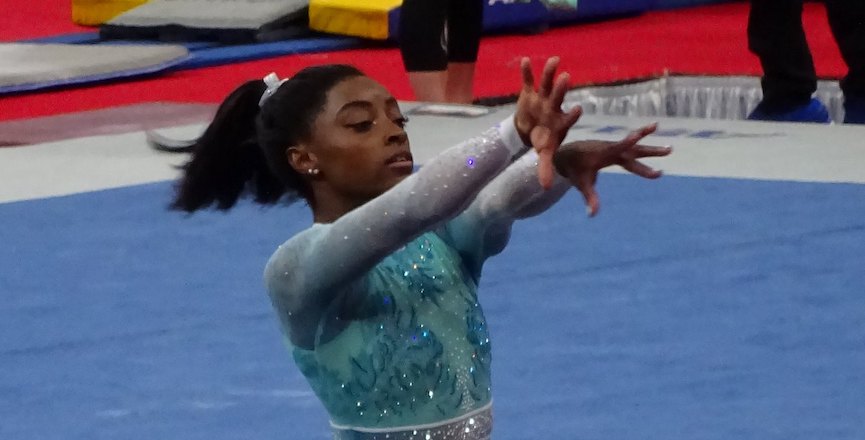It feels churlish to voice this, but I’m not sure I agree with Simone Biles’s ringing words: “I say put mental health first.” Second or third — maybe.
I mean we’re not dealing here (as far as we know) with some internal biochemical imbalances she and others were born with. The distress stems from a situation: Olympics culture in its 2021 version. The first incarnation of “mental health” arose in the First World War (bear with me — George Orwell said sport is “war minus the shooting”) with symptoms like shell-shock, the predecessor to PTSD.
Politicians wanted the shrinks to “fix” the soldiers and get them back to the abattoir, but some resisted because, er, war was the real problem. You can revisit it in Pat Barker’s Regeneration Trilogy of novels. What if the problem isn’t the athletes, but rather the Olympics?
The athletes feel real pain and deserve support and relief, but you don’t want to use mental healthification to let the source of that pain off the hook. There’s a shabbiness to these games in particular: the issue isn’t just empty arenas, it’s a sense that they’re only being held to avoid financial losses and serve the egos and careers of pols and sportsocrats against the unmistakably expressed opposition of the host population. The shrinks seem clearly in service of this juggernaut, not the athletes. “If you had a week or two…you could probably get her back to what she needed to do,” said one well-focused doc.
Some athletes are blindingly clear about this. A pissed-off Daniil Medvedev of the farcical Russian Olympic Committee team said, “I can finish the [tennis] match, but I can die. If I die, are you going to be responsible?” Family and old friends weren’t allowed in — people who loved these athletes from before their rise to fame — unlike IOC officials, for whom they’re mealtickets, or fans for whom they’re avatars expected to fulfil impossible dreams or incur hatred.
In addition, these games echo the new Cold War, like the Olympics back then, which were unabashedly tools to wield against the other side. Are you surprised it puts the athletes in a bind? “It just sucks when you are fighting with your own head,” said Biles. “That just hurts my heart that doing what I love has been kind of taken away from me to please other people.” You can’t reduce all that to her mental health, unless you’re out to hide stuff.
If you want a more precise model for Biles’s impasse, consider the late Edward Said’s analysis of solo classical concert performers. (Besides being a literary scholar and Palestinian advocate, he was a music critic and pianist.)
With the rise of the middle classes in the 1800s, public, ticketed concert halls replaced the courts, cathedrals and salons that previously supported musicians. This created for the virtuoso soloist what Said called “an extreme situation” along with “a perilous experience full of constant risk and potential disaster…in a confined space.” It had audiences “waiting for you to fail” and an “element of blood sport” like bullfighting. The performer had to “do things that almost by definition no one else can do” in “a situation where all kinds of dismaying things can happen — memory slips…confusion, missed concentration, finger trouble…” Does that sound like Biles getting in trouble during her botched vault or what?
The concert hall was a place of “intense competition,” where other musicians tried to “get ahead at your expense” and had a stake in your “disastrous performance.” This led Canada’s brilliant pianist, Glenn Gould — whom Said revered — to abandon concert stages for the recording studio, where he could be creative, not just skilled and ridiculously brave. Said felt such pressure precluded real creativity, which Gould found in the world of “take twoness.”
It brings to mind Biles’s own creativity. She’s apparently invented gymnastic moves so original that the judges (who reside on their own impenetrable Olympus from which they pass judgment) had no way of scoring.
Maybe she should move to her version of a recording studio, where she can do some undisturbed take-twoing on her routines and perhaps also just get the hell out of Dodge. She really has nothing left to prove there anyway.
Rick Salutin writes about current affairs and politics. This column was first published in the Toronto Star.
Image: Marissa Babin/Flickr



